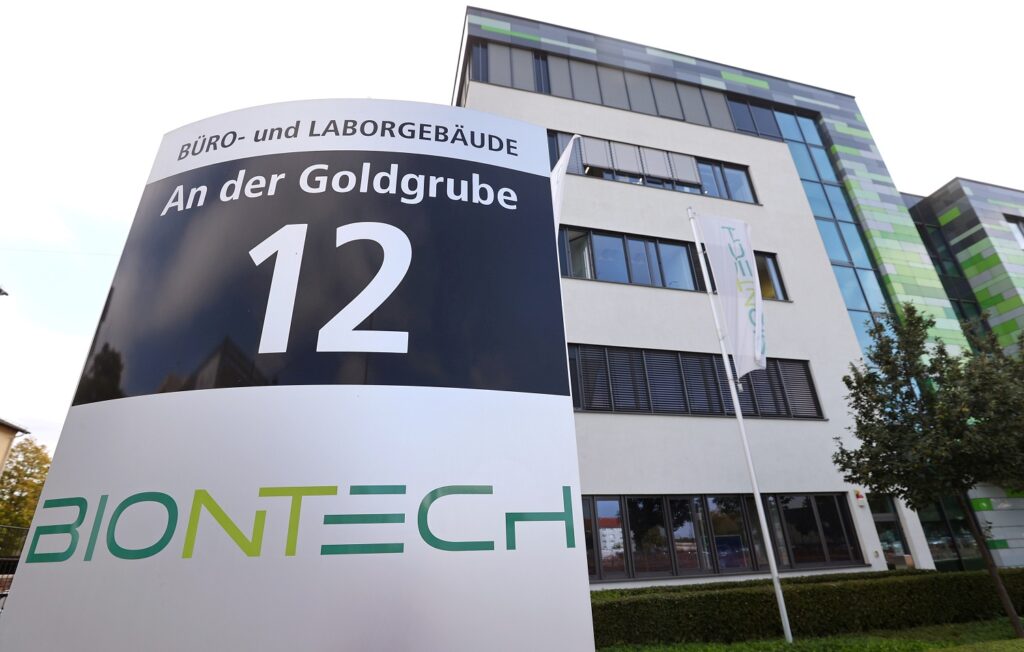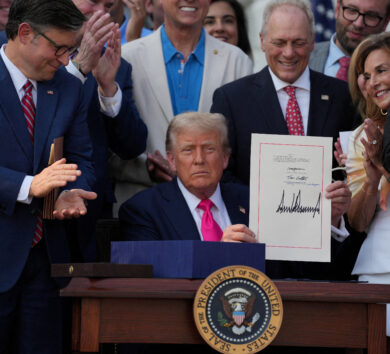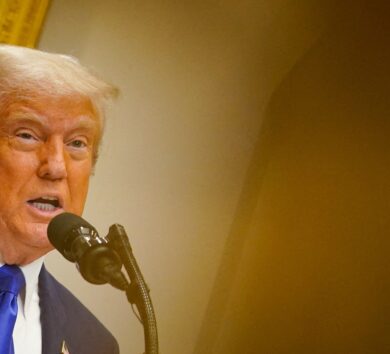
LONDON (Reuters)
Britain approved Pfizer’s COVID-19 vaccine this morning, jumping ahead of the United States and Europe to become the West’s first country to formally endorse a jab it said should reach the most vulnerable people early next week.
Prime Minister Boris Johnson touted the medicine authority’s approval as a global win and a ray of hope amid the gloom of the novel coronavirus which has killed nearly 1.5 million people globally, hammered the world economy and upended normal life.
Britain’s Medicines and Healthcare products Regulatory Agency (MHRA) granted emergency use approval to the Pfizer-BioNTech vaccine, which they say is 95 per cent effective in preventing illness, in record time – just 23 days since Pfizer published the first data from its final stage clinical trial.

The world’s big powers have been racing for a vaccine for months to begin the long road to recovery, and getting there first may be seen as a coup for Johnson’s government, which has faced criticism over its handling of the crisis.
“It’s fantastic,” Johnson said. “The vaccine will begin to be made available across the UK from next week. It’s the protection of vaccines that will ultimately allow us to reclaim our lives and get the economy moving again.”
The approval of a jab for use almost exactly a year since the novel coronavirus emerged in Wuhan, China, is a triumph for science, Pfizer boss Albert Bourla and his German biotechnology partner BioNTech.

But the breakneck speed at which approval was given drew criticism from Brussels where, in an unusually blunt statement, the European Union’s drugs regulator said its longer procedure to approve vaccines was more appropriate as it was based on more evidence and required more checks.
British leaders said that, while they would love to get a jab themselves, priority had to be given to those most in need – the elderly, those in care homes and health workers.
‘NO CORNERS CUT’
The U.S. drugmaker said Britain’s emergency use authorisation marks a historic moment in the fight against COVID-19. Pfizer announced its vaccine breakthrough on November 9 with stage III clinical trial results.
“This authorisation is a goal we have been working toward since we first declared that science will win, and we applaud the MHRA for their ability to conduct a careful assessment and take timely action to help protect the people of the UK,” said CEO Bourla.
“With 450 people dying of COVID-19 infection every day in the UK, the benefits of rapid vaccine approval outweigh the potential risks.”
Andrew Hill, senior visiting research fellow in the Department of Pharmacology at the University of Liverpool
Britain’s medicines regulator approved the vaccine in record time by doing a “rolling” concurrent analysis of data and the manufacturing process while Pfizer raced to conclude trials.
“No corners have been cut,” MHRA chief June Raine said in a televised briefing from Downing Street, adding that the first data on the vaccine had been received in June and undergone a rigorous analysis to international standards.
“Safety is our watchword.”
“With 450 people dying of COVID-19 infection every day in the UK, the benefits of rapid vaccine approval outweigh the potential risks,” said Andrew Hill, senior visiting research fellow in the Department of Pharmacology at the University of Liverpool.
The U.S. Food and Drug Administration (FDA) is set to meet on Dec. 10 to discuss whether to recommend emergency use authorization of the Pfizer/BioNTech vaccine and the European Medicines Agency (EMA) said it could give emergency approval for the shot by December 29.

“The data submitted to regulatory agencies around the world are the result of a scientifically rigorous and highly ethical research and development programme,” said Ugur Sahin, chief executive and co-founder of BioNTech.
BioNTech said it expected FDA and EMA to make a decision in mid December.
Anti-poverty campaigners, meanwhile, warned against rich countries hoarding vaccines at the expense of poorer ones. “The worst thing we can do at this moment is allow a small number of countries to monopolise access to vaccines like this,” said Romilly Greenhill, UK director of the ONE organisation.
FIRST IN LINE?
Britain said it would start vaccinating those most at risk of dying early next week after it gets 800,000 doses from Pfizer’s manufacturing centre in Belgium.

“Age is by far the single most important factor in terms of risk from COVID-19,” said Wei Shen Lim, head of Britain’s COVID-19 vaccine committee. Lim said there had been no suggestion a vaccine would be compulsory.Slideshow ( 5 images )
The speed of the rollout depends on how fast Pfizer can manufacture and deliver the vaccine – and the extreme temperature of -70C (-94F) at which the vaccine must be stored.
Britain has ordered 40 million doses of the Pfizer vaccine – enough for just under a third of the population as two shots of the jab are needed per person to gain immunity.

Health Secretary Matt Hancock said hospitals were ready to receive the shots and vaccination centres would be set up across the country, but he admitted distribution would be a challenge given storage at temperature typical of an Antarctic winter.
Pfizer has said the shots can be kept in thermal shipping boxes for up to 30 days. Afterwards, the vaccine can be kept at fridge temperatures for up to five days.
Other frontrunners in the vaccine race include U.S. biotech firm Moderna, which has said its shot was 94 per cent successful in late-stage clinical trials, and AstraZeneca, which said last month its COVID-19 shot was 70 per cent effective in pivotal trials and could be up to 90 per cent effective.







Comments